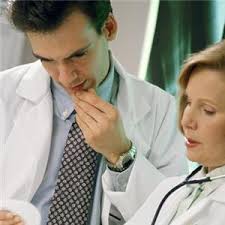“Medical checkups
For each decade of your life”
Whether in your 20’s or well into your 70’s, prevention is the key to sustaining health and vitality. Follow this simple procedure to maintain good health and peace of mind and prevent what can be prevented and realize that it’s never too late…
In your 20’s and 30’s:
This is the age of prevention and early detection. Most checkups aren’t necessarily annual unless results of a test demand more frequent monitoring.
Risks:
Women:
High cholesterol: can start as early as your 20’s
Breast cancer: young women with family history are at an increasingly high risk
Type 2 diabetes: becoming more common now
Tests:
1. Breast self examination
2. Pap smear
3. Mammogram if considered high risk
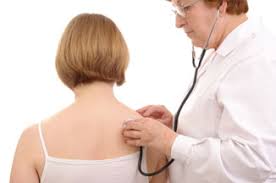
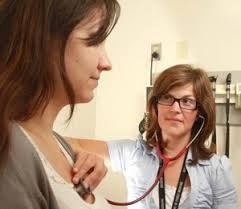
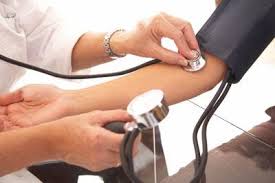

Men:
Heart disease: #1 killer over age 35
Type 2 diabetes: becoming more common now
High cholesterol: leading precursor of heart disease
Tests:
1. Only an ECG recommended in this 20-30 age group unless the doctor prescribes a specific test



Common tests:
· blood pressure check at every visit to the doctor
· complete blood count
· annual blood glucose
· serum lipid profile
Fact file:
Type 2 diabetes:
In the type-1 diabetes the immune system destroys the cells of the pancreas that produce insulin. A person with type 2diabetes still produces insulin but the body doesn’t respond to it normally. Glucose is less able to enter the cells and do its job of supplying energy. This causes the blood sugar level to rise, making the pancreas produce even more insulin. Eventually, they wear out and may no longer be able to keep blood sugar levels normal.
In your 40’s:
Both men and women are at a greater risk for heart disease and type 2 diabetes after age 30. One in 10 cancers is diagnosed in people aged 25-40.
Risks:
Women:
Heart disease: # 1 killer of women aged 40-50
Ovarian cancer: most common after age 40
Breast cancer: # 1 cancer in women ages 40-50
Tests:
1. Breast self examination
2. Pap smear
3. Mammogram for all women
4. Bone density testing if at risk for osteoporosis
5. Ovarian screening for post – menopausal/ high risk women




Men:
Heart disease: men over 40 are 3X more likely to have heart disease than women over 40
Prostate cancer: men in late 40’s & with family history will be at greater risk
Tests:
1. Heart disease screening every 5 years, annually if high risk; screening for prostate cancer if high risk, examination by doc and serum PSA
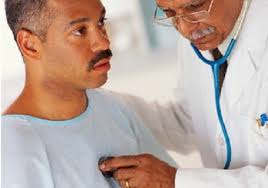
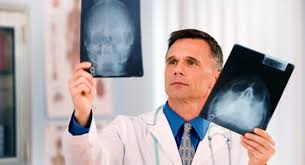

Common tests:
· Blood glucose
· Serum lipid profile
· Blood pressure
· ECG
· Complete blood count
· Visit to cardiologist/ TMT (exercise testing) if indicated
Fact file:
Breast cancer:
Is uncontrolled growth of breast cells. About a fifth of breast cancers start in the glands that produce milk, also called lobules. About 80% start in the milk passages that connect the lobules and the nipple. Nowadays, preventive exam is must for women in their 30’s
In your 50’s:
Risks:
Women:
Osteoporosis: half of all women over 50 risk a fracture due to osteoporosis
Heart disease: #1 killer of women over 50 years
Ovarian cancer: most common in women over 50 years
Colon cancer: check for polyps, must for those in high risk group
Tests:
1. Breast self examination
2. Pap smear
3. Mammogram
4. Bone density testing
5. Ovarian screening
6. Coronary screening including ECG




Men:
Prostate cancer: men over 50 at highest risk
Heart disease: # 1 of killer of men over 50
Colon cancer: screening for polyps
Tests:
1. Serum PSA for prostate cancer




Common tests:
· All common tests of the 40’s
· Stool for occult blood testing (optional)
Fact file:
Lipid profile:
Lipid profile is a group of tests that are often ordered together to determine risk of coronary heart disease. The tests typically include: total cholesterol; high density lipoprotein cholesterol (or good cholesterol); low density lipoprotein cholesterol (or bad cholesterol); and triglycerides.
In your 60’s:
Risks:
Women:
Osteoporosis: 1 in 2 women over 60 will suffer a fracture
Stroke: 75% of strokes occur after 65
Colorectal cancer: most cases of colorectal cancer in women occur after 60
Heart disease: # 1 killer of women over 60
Tests:
1. Bone density testing
2. Mammogram
3. Pelvic exam
4. Coronary screening
5. Pap smear
6. Colorectal cancer screening in high risk patients




Men:
Prostate cancer: 1 in 15 men aged 60-69 at highest risk
Colon cancer: screening for polyps must
Stroke: 75% strokes occur after age 65
Tests:
1. Prostate cancer screening
2. Colorectal cancer screening in high risk patients
3. Ultrasound of abdomen ( for abdominal aortic aneurysm) esp. in smokers (optional)
4. Cholesterol testing
5. Coronary screening



Common tests:
· All tests suggested for those in their 50’s
· Stool for occult blood
Fact file:
Bone density:
Is a medical term normally referring to the amount of mineral matter per square centimeter of bones. Bone density measurements are used to screen women for osteoporosis risk and to identify those who might benefit from measures to improve bone strength.
Colorectal cancer:
Commonly known as bowel cancer, this disease is because of uncontrolled cell growth in the colon rectum ( parts of the large intestine) symptoms typically include rectal bleeding and anemia which are sometimes associated with weight loss and changes in bowel habits. Colorectal cancer is more common in developed countries.
In your 70’s:
People in their 70’s need to be continually vigilant about diet, exercise and preventative exams



What about the cost?
Starting this year, expenses on medical diagnostics of up to Rs. 5,000 in a year have been made tax deductable under section 80D of the income tax act. This is part of the Rs. 15,000 tax deduction allowed for medical insurance every year. So preventive care is tax prudent too.



